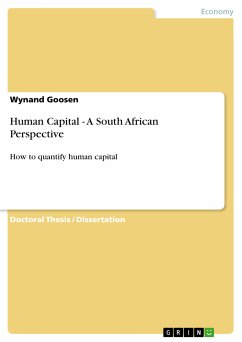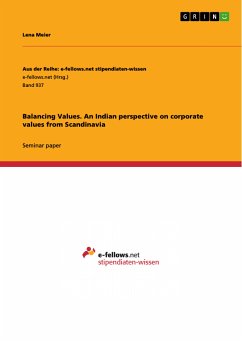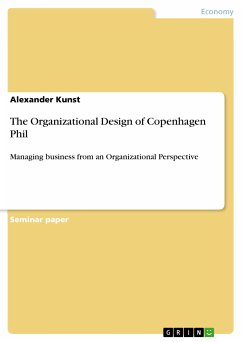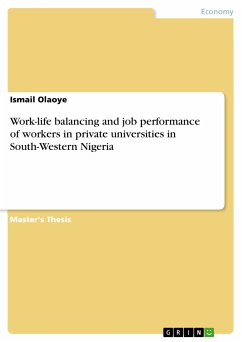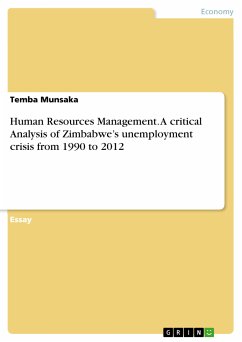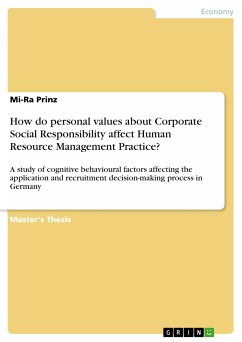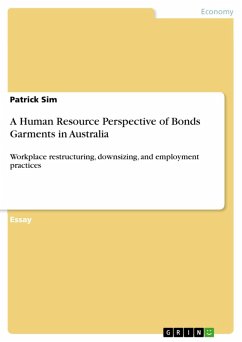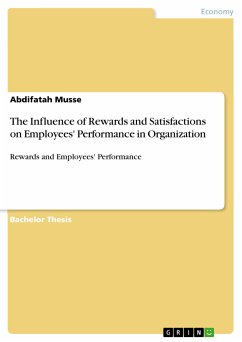Doctoral Thesis / Dissertation from the year 2012 in the subject Leadership and Human Resources - Miscellaneous, The DaVinci Institute, course: PhD, language: English, abstract: he research problem addresses the issue of learning taking place on broad walks of life. Such learning attracts limited recognition. The objective is to develop a system where structure could be given to such learning, for inclusion in formal systems. The researcher considers amongst other the role of organizational objectives, in determining required skills. Required human capital could be benchmarked against "formal learning programs", with a view to create a formal credit transfer system. The research also probes the possibility of using such a system to determine specific skills gaps. Collectively, the research is contextualized within a Corporate Qualifications Framework (CQF), that measuring human capital in terms of a strategic plan. A Corporate Qualifications Framework operates on three principles - the required human capital (demand side), the actual human capital (supply side) and the gap. The demand side consists of job descriptions, qualifications and occupational profiles. Supply side standards are used to measure actual human capital by means of performance management, performance assessment and the recognition of prior learning (RPL). The development of a Meta Business Framework suggests a business consciousness that recognizes the role of thinking and the development of alternative realities that recognizes the evolution of humanity. Meta Business suggests that business honours the relationship between mind and matter as well as the interconnectedness of all things. Thus, the evolution of educational thought, being integral to Meta Business, suggests the development of learning to serve business requirements, whilst business is designed for the benefit of humanity. The discussion is centered on the possibility of using non-formal learning as formal credit in a process termed "work based learning". The process entails creating a system whereby the training conducted at the workplace translates into credits in formal education. The roles of academic institutions are important to enhance legitimacy & credibility. The result is the creation of a framework that is industry based. The implications are that a CQF can be used to develop an integrated system of human capital management. The integrated conclusion suggests a redesign of the current educational system in South Africa, to become adaptable and effective, serving the needs of industry and society at large.
Dieser Download kann aus rechtlichen Gründen nur mit Rechnungsadresse in A, B, BG, CY, CZ, D, DK, EW, E, FIN, F, GR, HR, H, IRL, I, LT, L, LR, M, NL, PL, P, R, S, SLO, SK ausgeliefert werden.

